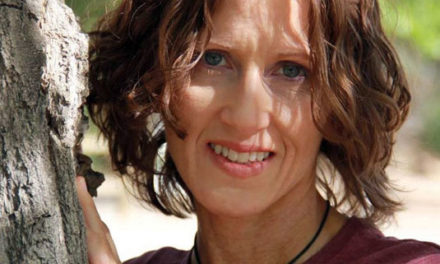Body aches, chills, shakes, nausea and a Fitbit sleep score of 53 out of 100.
Normally these would send me running to my nearest urgent care, but this time was different — I had just received a Pfizer COVID-19 vaccine about 12 hours prior to the onset of symptoms.
These symptoms are not uncommon, especially for those receiving their second dose of the vaccine (though Moderna seems to knock people down harder than Pfizer). Although I currently feel awful, achy and sleep deprived, the symptoms are worth it since the positives of getting vaxed far outweigh the negatives.

Makayla Grijalva
I know from personal experience that when you are laying in bed at 3 a.m., unable to sleep due to full-body aches and semi-delirium, getting vaccinated doesn’t seem like the best choice you’ve made in your life. It’s hard to remember that all the flu-like symptoms associated with the booster is a good thing and your body is reacting correctly.
The bottom line is getting vaccinated far reduces your chance of getting the coronavirus, reduces your chance of developing symptoms if you happen to get it and makes your chances of dying from the disease close to zero. As we learned from the CDC announcement last week, vaccinated individuals are also much less likely to transmit the virus to others.
When the problems arose surrounding the Johnson & Johnson vaccines and blood clots among both my gender and general age group, it did set off alarm bells in my mind, especially because I was scheduled to receive the single dose the same day the FDA recommended to halt distribution.
Of course my appointment was cancelled and rescheduled for a few days later, but that didn’t resolve my new-found apprehension surrounding getting vaccinated. It wasn’t until my friends and colleagues reminded me that the halt in distribution is a sign the system is working as designed.
Through the vaccine trials, any major problems with the vaccinations would, hypothetically, be worked out before mass distribution. It wasn’t until the vaccinations were available on a larger scale than the one in a million — or in this case, six in seven million — chance of problems would be discovered. The FDA also acted in a an appropriate way, halting vaccinations of the particular brand until they could figure out what was going on and how that could affect the general U.S. population.
As for the long term side effects that are affecting others’ decisions to get vaccinated, historically the major side effects occur within six weeks of vaccination. This was not a concern of mine and, from what I can tell, it is also not a concern of doctors in general.
We, as a community, as a country, need to learn to trust the doctors and trust the process. Getting vaccinated against COVID-19 is possibly the most patriotic thing you can do at the moment for the sake of those around you.
Now that I am vaccinated, I have big plans to begin traveling again (I’m thinking Hawaii). I’m also excited to begin regularly seeing my family again without worrying if someone I interviewed or came in contact with as a result of my job could have possibly infected me. Most of all, I’m excited to be able to hug my grandparents again. But, those things will have to wait for roughly 14 days — for now, I will focus on feeling better.
Makayla Grijalva was born and raised in Las Cruces. She is a 2020 graduate of The University of New Mexico, where she studied multimedia journalism, political science and history.















